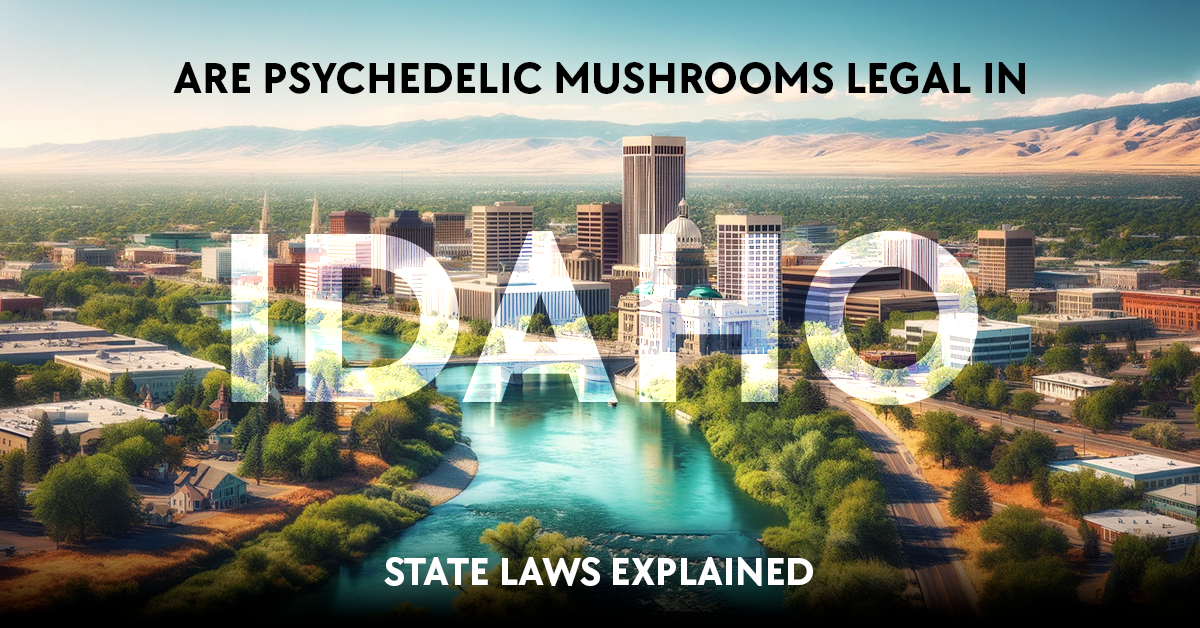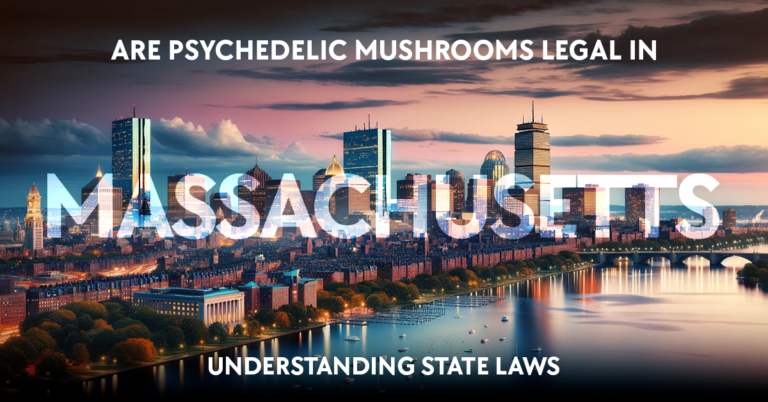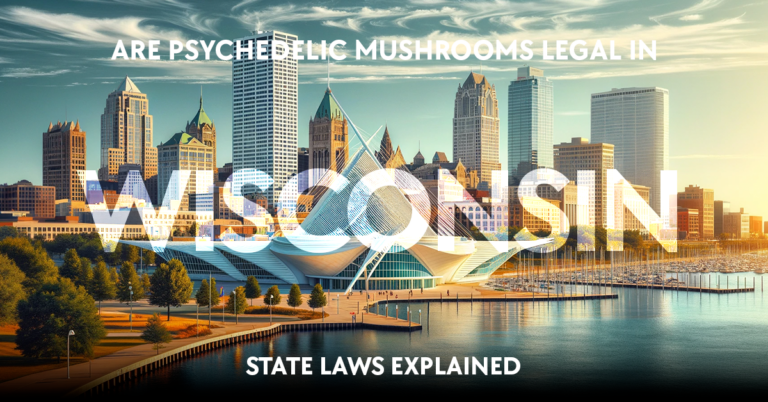When exploring the intricate web of state legislation concerning controlled substances, you may wonder about the legal status of psychedelic mushrooms in Idaho. As of the current understanding, Idaho maintains strict regulations against the possession, sale, and use of psilocybin mushrooms, which are classified as Schedule I controlled substances under both federal and state law. This means that, in Idaho, these substances are considered to have a high potential for abuse, no currently accepted medical use in treatment, and a lack of accepted safety for use under medical supervision.
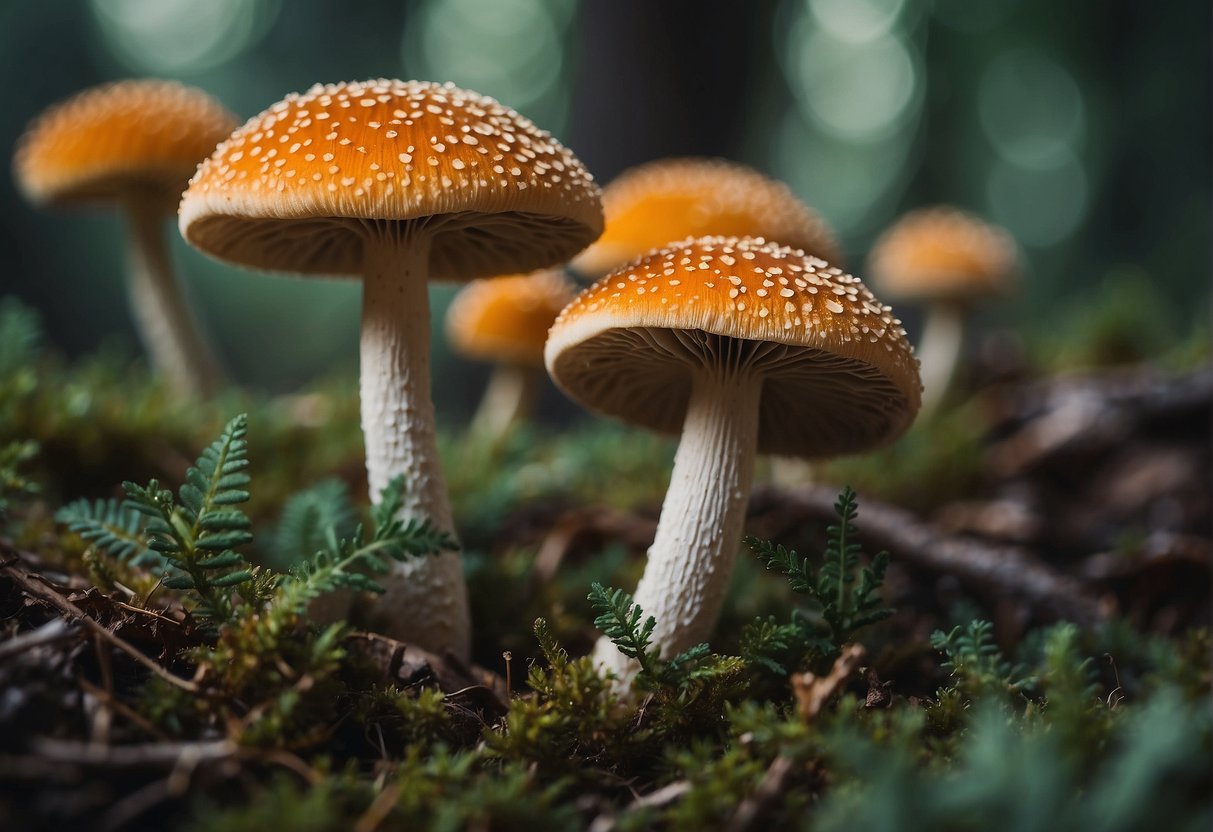
Legal cases have reinforced the state’s stance on these substances. For instance, in State v. Smith, the respondent faced legal consequences for attempting to arrange a sale of psychedelic mushrooms, underlining the active enforcement of the law concerning psilocybin. Moreover, Idaho’s legal system has occasionally dealt with issues related to the equitable tolling in cases involving an individual’s access to representation or legal materials, as noted in Williams v. State, although this isn’t directly related to the legality of psilocybin itself but can impact legal proceedings in such cases.
Legal discussions and court cases apart, as someone residing in or visiting Idaho, it’s crucial to be aware that pursuing any activities involving psychedelic mushrooms can lead to significant legal trouble. Whether for personal use or scientific curiosity, the current legal framework provides no leeway for the possession or use of these substances within the state’s jurisdiction.
Legality of Psilocybin in Idaho
Table of Contents
https://www.youtube.com/watch?v=-h6rc-FE5uk&embed=true
In Idaho, psilocybin, the psychoactive compound found in certain species of mushrooms, remains illegal. Classified as a Schedule I substance under both federal and Idaho state law, psilocybin is deemed to have a high potential for abuse and no accepted medical use, making its manufacture, distribution, and possession strictly prohibited.
Criminalization of psilocybin means that if you are found in possession of these mushrooms, you may face severe legal consequences. According to Title 37, Chapter 27 of the Idaho Code, the penalties for possession can be significant, including potential imprisonment and fines.
Here’s a brief overview of what you need to know about psilocybin’s legal status in Idaho:
- Idaho State Law: Unambiguous in its approach, the state has not enacted any legislation to alter the federal status of psilocybin. It remains a criminal offense to possess, sell, or use psilocybin mushrooms.
- Legislature: The Idaho legislature has not indicated any immediate plans to reassess the legal status of psilocybin in response to decriminalization movements seen in some other U.S. states.
- Potential Risks: Engaging with psilocybin in any form could lead to arrest, prosecution, and a criminal record.
Your understanding of these legal boundaries is crucial when considering any activities related to psilocybin mushrooms within the state. Stay informed about the laws to avoid unintended legal ramifications.
Federal Classification and State Laws
When you consider the legal status of psychedelic mushrooms, it’s crucial to understand both the federal drug scheduling and how state laws can vary. Recognizing the classification and legislation can help you navigate the complex legal landscape surrounding these substances.

Federal Drug Scheduling
Psychedelic mushrooms, containing the active compound psilocybin, are listed as a Schedule I controlled substance at the federal level in the United States. This classification denotes that they are considered to have a high potential for abuse, no currently accepted medical use, and a lack of accepted safety for use under medical supervision. Consequently, under federal law, the production, distribution, and possession of psychedelic mushrooms are illegal.
Comparison with Other States
In contrast to federal law, several states have taken steps toward the decriminalization and legalization of psychedelic substances. For instance, Oregon has passed legislation to allow the supervised therapeutic use of psychedelic mushrooms, marking a significant deviation from federal policy.
- California and Colorado have seen movements advocating for decriminalization, with California having attempted to pass legislation to decriminalize various psychedelic substances.
- Michigan has municipalities where efforts to decriminalize naturally occurring psychedelics have been successful.
- Washington is another state where some cities have expressed interest in the decriminalization of psychedelic plants and fungi.
These cases represent a broader trend where state-level actions can differ substantially from federal legislation, reflecting growing interest in the potential therapeutic benefits of these substances and shifting public opinion on drug policy. However, it’s important to note that in Idaho, psychedelic mushrooms remain illegal, with no current public measures toward decriminalization or legalization.
Medical and Therapeutic Research
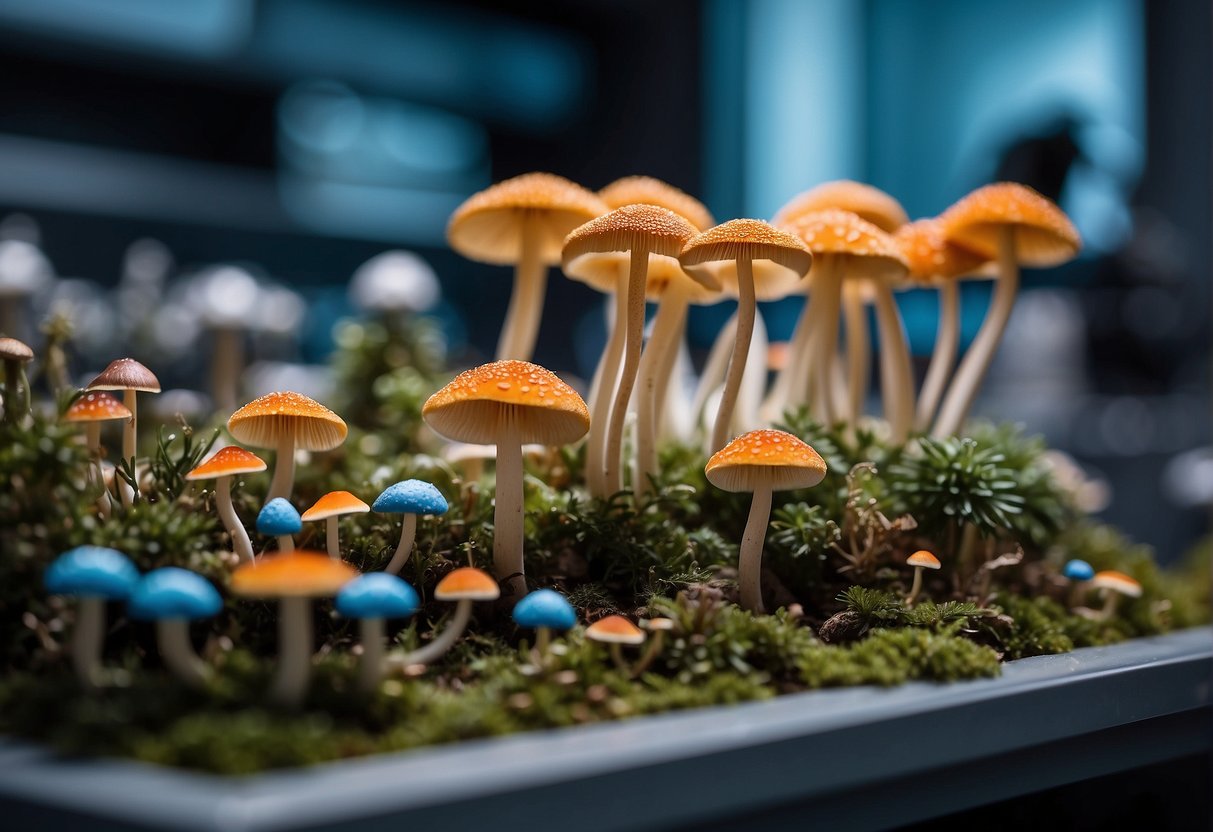
Your interest in the status of psilocybin mushrooms for medical and therapeutic research is particularly timely given the evolving legal landscapes and emerging studies. In Idaho, as you seek to understand the legality of such substances, it’s vital to consider ongoing research efforts and therapeutic initiatives structuring the conversation around these psychedelic compounds.
Current Research
Research into the medical use of psilocybin mushrooms is growing, although it’s limited in certain states due to legal restrictions. In Idaho, psilocybin remains illegal, hampering local research initiatives. However, nationally and internationally, clinical trials are investigating the efficacy of psilocybin therapy, especially for depression, anxiety, and PTSD. Studies suggest that psilocybin, when used under medical supervision, can create significant improvements in mental health treatment outcomes.
Psilocybin Therapy Initiatives
Psilocybin therapy initiatives aim to leverage the compound’s potential to revolutionize mental health treatment. Psilocybin has been granted “breakthrough therapy” status by the FDA for depression, which facilitates the development and review of drugs for serious or life-threatening conditions. Initiatives across the country are campaigning for legal changes to allow for medical studies and use, with a focus on the treatment of mental health conditions. While Idaho’s current laws restrict these ambitions, the state of clinical research elsewhere illuminates a future where these treatments might become more accessible.
Public Opinion and Advocacy
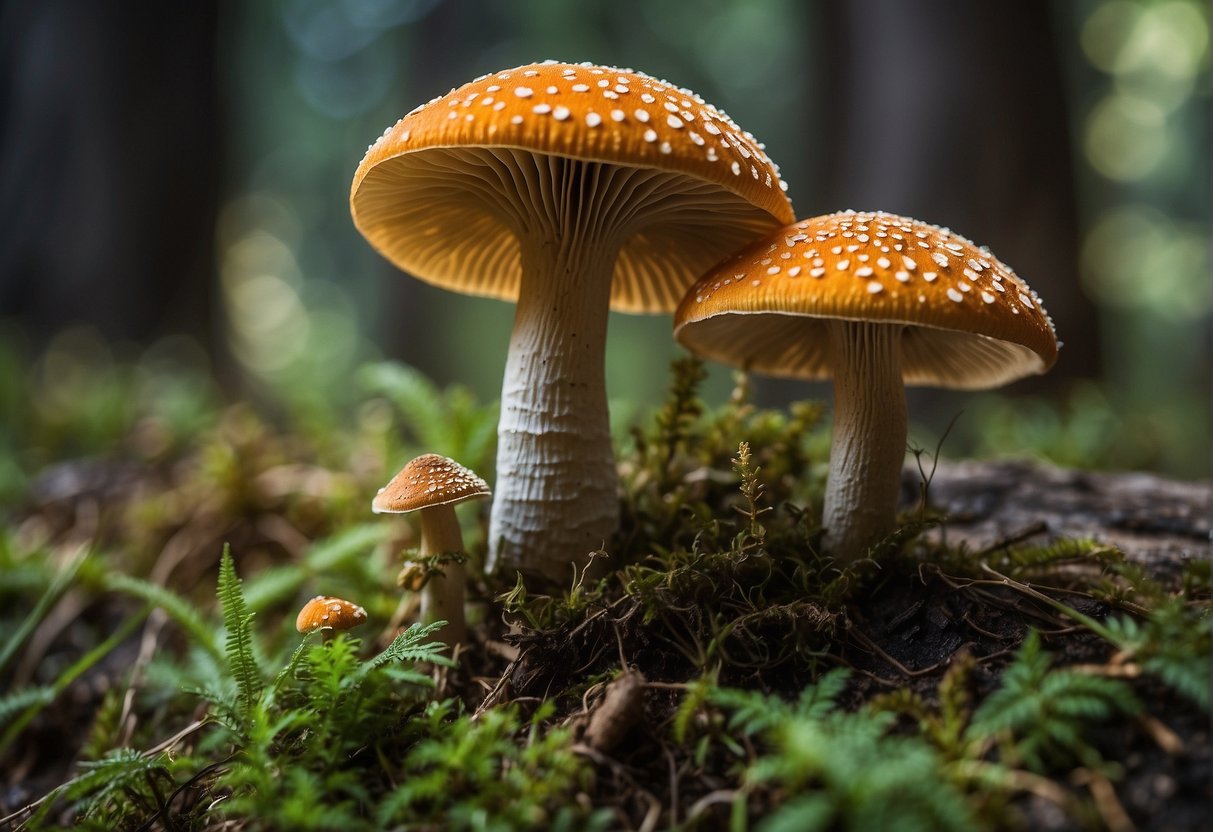
In recent years, you’ve witnessed a shifting landscape regarding the legality of psychedelic mushrooms. While Idaho maintains strict laws against their use, there’s a growing dialogue about the benefits of these substances and the potential for policy reform driven by public support and advocacy movements.
Support for Decriminalization
Advocacy for decriminalization has gained momentum as you may have seen various campaigns emphasizing the medicinal benefits of psychedelic mushrooms. There is an increasing number of individuals who advocate for the reconsideration of laws surrounding these substances, suggesting that they should be decriminalized for therapeutic use. This position reflects a broader shift towards a public health approach over strict criminalization.
Advocate Groups and Movements
Advocate groups and organized movements are at the forefront, working tirelessly to bring about legal changes. They champion the use of these substances for therapeutic purposes and push for ballot initiatives that aim to reform laws. Such groups often host educational campaigns to inform the public about the potential benefits of decriminalization and the use of psychedelic mushrooms as medicine. These advocates highlight how decriminalizing could reduce the burden on the legal system and advance medical research.
Regulation of Psilocybin Spores
In Idaho, the legal status surrounding psilocybin mushroom spores is stringent. Your understanding of the law is crucial if you are considering the purchase or handling of these spores. Under Idaho law, psilocybin, the active psychedelic compound found in certain species of mushrooms, is classified as a Schedule I controlled substance. This means that not only the mushrooms but also the spores containing psilocybin are subject to regulation.
- Sale: The sale of psilocybin spores is illegal.
- Cultivation: Cultivating psilocybin mushrooms from spores is a criminal activity.
In some regions, psilocybin mushroom spores are sold legally for educational and research purposes under the condition that they will not be cultivated. However, this is not the case in Idaho. Possession of psilocybin mushroom spores with the intent to cultivate mushrooms is prohibited. Moreover, the state has implemented measures to prevent the distribution and proliferation of these spores.
It’s essential to recognize that even if spores don’t contain psilocybin themselves, the potential for these spores to grow into mushrooms that do means the authorities treat them accordingly. This interpretation of the law places psilocybin spores in a precarious legal position, enforcing the same penalties as those found possessing the fully grown mushrooms.
To summarize, your involvement with psilocybin spores in Idaho can lead to significant legal consequences. It’s of utmost importance to abide by the state’s laws and avoid any activities related to these spores, including purchase, sale, or cultivation. Stay informed and exercise caution to ensure compliance with Idaho’s regulatory stance on psilocybin spores.
Effects and Risks of Psilocybin Use
Understanding the potential benefits and health risks of psilocybin, a key compound in psychedelic mushrooms, is important for you to make informed decisions about its use. Psilocybin, along with other psychedelics such as DMT, LSD, mescaline, and ayahuasca, has a complex profile affecting both mental health and cognitive perception.
Potential Benefits
Research has indicated that psilocybin can offer potential therapeutic benefits, including the reduction of existential anxiety, which may be present in individuals with life-threatening cancer diagnoses. Some studies suggest that psilocybin, along with other psychedelics, can catalyze a creative mental state, potentially enhancing problem-solving abilities and artistic expression. While not characteristic of classic addictive substances, psychedelics like psilocybin have a low potential for abuse and dependence, highlighting their relative safety in a controlled setting.
Health Risks
Despite its potential benefits, psilocybin use is not without risks. Health professionals flag concerns regarding the safety profile of psilocybin, as improper use can lead to acute adverse psychological effects such as panic attacks and psychosis. Chronic use might exacerbate underlying mental health conditions and can result in hallucinogen persisting perception disorder (HPPD), where users experience flashbacks and visual disturbances. Unlike psilocybin, substances like LSD and mescaline may come with a higher potential for abuse due to their more potent and longer-lasting effects. It is crucial for you to consider the legal status and research on the safety and health implications of psilocybin, especially as it remains illegal in certain regions, including Idaho.
Legalization Movements in Other Jurisdictions
The national landscape of psychedelic mushrooms’ legal status is shifting, with numerous local and state governments exploring decriminalization and legalization. As you look at efforts across the country, it’s essential to note the trend towards more lenient policies, particularly in cities.
Local Decriminalization Efforts
Cities such as Santa Cruz and Oakland in California, Denver in Colorado, Seattle in Washington, Somerville and Northampton in Massachusetts, and Ann Arbor in Michigan have taken the lead in decriminalizing psilocybin mushrooms. Decriminalization often means that law enforcement will treat possession of small amounts as low priority, with no arrests, charges, or criminal records for personal use.
- Denver became the first city to decriminalize psilocybin mushrooms in May 2019.
- Oakland and Santa Cruz followed by enacting similar resolutions that prohibit city funds from being used in the enforcement of laws against psychedelic plants and fungi.
State Legislation Changes
When observing state-wide initiatives, efforts become more varied. States such as Vermont, New Mexico, Iowa, and Georgia have seen various forms of bills and discussions surrounding the legalities of psychedelics.
- New York has seen proposed legislation aiming to legalize psilocybin mushrooms for medical use.
- California has a history of progressive drug policies and has introduced legislation aimed at decriminalizing psilocybin statewide.
Some states, like Vermont and New Mexico, have explored the medical benefits of psychedelics, which may influence their legal status in the future. While there is a progressive trend toward relaxation, remember that federal law still deems psilocybin mushrooms as an illicit substance, and local laws may vary significantly.
International Perspective
Psychedelic mushrooms containing psilocybin are subject to an array of international laws and research interests, with varying legal statuses and therapeutic applications across the globe.
Global Legal Status of Psilocybin
Psilocybin, the active compound in psychedelic mushrooms, is broadly classified under international treaties, like the United Nations 1971 Convention on Psychotropic Substances, which standardizes it as a Schedule I drug. This categorization indicates a substance with a high potential for abuse and no recognized medical use, which heavily influences national laws. However, enforcement and the legal status of psilocybin mushrooms can vary significantly from country to country.
- Legal: In some countries like the Netherlands, certain forms of psilocybin mushrooms (truffles) are legal and available in smart shops.
- Decriminalized: In other regions, such as Brazil and the Czech Republic, personal use and possession are not punishable by law.
- Illegal: Many countries enforce strict prohibitions, where both sale and possession are illegal, which often includes the United States, with specific states as exceptions.
International Research and Therapies
Internationally, psilocybin has garnered significant attention for its potential therapeutic benefits in clinical settings. Research institutions around the world are investigating its use for:
- Mental Health: You’ll find studies focused on treating depression, anxiety, PTSD, and end-of-life distress.
- Therapeutic Settings: There is a trend of controlled, therapeutic administrations of psilocybin in countries leaping forward with this research, although it remains tightly regulated.
You may discover that while psilocybin remains illegal in many places, international sentiment is shifting towards exploring its medical use, potentially reshaping the therapeutic landscape in the years to come.
Frequently Asked Questions
The legal landscape surrounding psychedelic substances can often be complex. In Idaho, the status around psilocybin mushrooms is worth examining for those concerned or curious about the nuances of state law.
What is the current legal status of psilocybin mushrooms in Idaho?
Psilocybin mushrooms, also known as psychedelic mushrooms, are currently classified as a controlled substance in Idaho. This places them in the same category as other Schedule I drugs, which are deemed to have a high potential for abuse and no accepted medical use.
Are there any exceptions for the use of psychedelic mushrooms under Idaho law?
Idaho law does not provide any exceptions for the use or possession of psychedelic mushrooms. This means that use for personal, medical, or any other purpose remains illegal.
Has there been any recent legislation in Idaho regarding psychedelic mushrooms?
There has not been recent legislation to change the legal status of psychedelic mushrooms in Idaho. They remain illegal and classified under Schedule I controlled substances.
Can an individual be penalized for possessing psychedelic mushrooms in Idaho?
Yes, an individual found in possession of psilocybin mushrooms can face criminal charges. The severity of these penalties is generally determined by the quantity in possession and whether it’s deemed for personal use or distribution.
What are the potential legal repercussions for selling psychedelic mushrooms in Idaho?
Selling psilocybin mushrooms is considered a felony in Idaho and can carry heavy penalties, including a significant prison sentence and substantial fines.
Does Idaho recognize any medical or therapeutic uses for psychedelic mushrooms?
No, as of the current laws, Idaho does not recognize any medical or therapeutic uses for psilocybin mushrooms. Despite emerging research elsewhere, Idaho’s legislation maintains a prohibition stance without exceptions for medical treatment.

